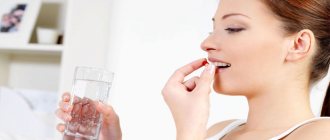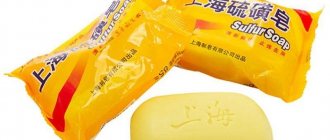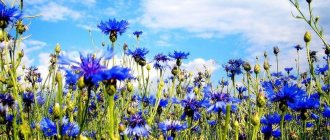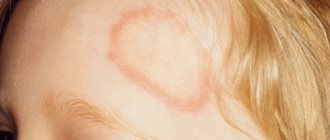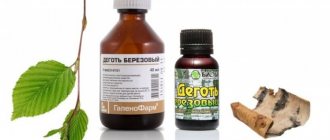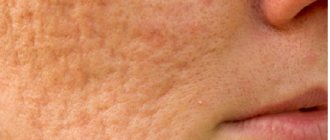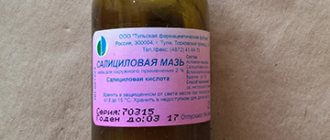What herbs help with psoriasis
To find out which herbs treat psoriasis, you need to understand what actions they should have:
- reduce the severity of inflammation;
- enhance regeneration;
- dry;
- eliminate microbes, fungi;
- restore the epidermis;
- reduce pain.
Herbal remedies can be used in different ways: internally, as compresses, baths. You can use one plant or combine. They help make symptoms less pronounced and prolong remission. It is recommended to follow basic advice from your doctor.
| Herbs for psoriasis | Properties | Contraindications |
| Sage | Eliminates inflammation and kills germs | Lactation, hypotension, malfunction of the thyroid gland and kidneys |
| Agrimony | Helps eliminate toxins and eliminate allergies | Pregnancy, bowel movements |
| Sassaparilla | Removes toxins, tones the body, normalizes hormonal balance | Individual intolerance |
| Chamomile | Relieves inflammation, kills germs, accelerates regeneration | Pregnancy and lactation |
| Aloe | Antiseptic and restorative effect | |
| Caustic sedum | Revitalizing and anti-inflammatory | Pregnancy and lactation, tendency to allergies, childhood |
| Cassia holly | Promotes tissue regeneration, removes toxins | Long-term use is contraindicated |
| Calendula | Fights germs, eliminates inflammation | Children's age, gastrointestinal diseases, hypotension |
| Series | Has an antiseptic effect and analgesic effect | Cannot be taken orally |
| Valerian | Improves the condition of blood vessels, soothes | Pregnancy, lactation, childhood, cardiovascular disorders. An overdose of the drug can cause gastrointestinal pathologies |
| St. John's wort | Fights bacteria, improves tissue trophism, promotes wound healing | Pregnancy and lactation, hypertension. When taken frequently, it can have a toxic effect on the liver and can provoke impotence in men. |
| Sea buckthorn | Herb for the treatment of psoriasis has an antitumor effect and fights infections | Pregnancy and lactation |
| Nettle | Improves metabolic processes, stimulates recovery | Liver and kidney diseases, pregnancy |
| Air | Antipruritic and decongestant properties | Gastritis, peptic ulcer, pregnancy, kidney and liver diseases, childhood |
| Bay leaf | Kills microbes, accelerates regeneration processes | Chronic pathologies of the urinary, cardiovascular and gastrointestinal systems, pregnancy and lactation, constipation |
| Hop | Soothes, relieves pain, improves the functioning of the gastrointestinal tract | Not used for pathologies of the reproductive system in women: inflammation and neoplasms |
Medicinal herbs used
What herbs are more effective for psoriasis? The most popular are: Celandine, Celandine, Licorice, Hops, Sage, Calendula, Agrimony and Sassaparilla.
Celandine
Relieves painful itching and effectively eliminates skin flaking. The juice of the plant has an anti-inflammatory, bactericidal, wound-healing effect. When treating psoriasis at home, the herb is used in the form of compresses, psoriatic plaques are lubricated with fresh juice, and the decoction is added to bath water.
Contraindications, side effects
When taken orally, celandine-based products can cause inflammation of the digestive tract. Grass often causes allergies. It cannot be used for epilepsy, bronchial asthma, angina pectoris, during pregnancy and breastfeeding.
Detailed information about the use of celandine for psoriasis is here.
Series
The medicinal properties of the plant are due to its unique composition. The herb contains a large amount of oils that relieve inflammation that occurs with psoriasis and promote rapid healing of diseased areas. The series also has antibacterial and antiallergic properties. When taken orally, the infusion helps cleanse the liver and regulates metabolic processes.
Contraindications, side effects
When taken internally, an infusion of the plant can provoke irritability, nervous agitation, and panic attacks.
Licorice
It has anti-inflammatory properties, improves metabolic processes, has a laxative effect, and accelerates the removal of unnecessary waste from the body. When used externally, it relieves irritation, itching, and cleanses the skin.
Contraindications, side effects
Licorice should not be used for hepatitis, cirrhosis, diabetes, or renal failure. It increases blood pressure, so it is not indicated for hypertension. It is also undesirable to use licorice during pregnancy.
Hop
An infusion of cones has a calming effect, relieves pain, inflammation, and normalizes the functioning of the gastrointestinal tract.
Contraindications, side effects
The product cannot be used in the presence of gynecological diseases: cysts, polyps, tumors, polycystic disease, endometriosis. The estrogens contained in the cones can provoke their growth and degeneration. The use of infusions and decoctions sometimes causes an allergic reaction in the form of skin rashes and inflammation of the mucous membranes.
Sage
The herb effectively helps with psoriasis, including the scalp. Products based on it relieve inflammation, stimulate local immunity, and have an antibacterial and antifungal effect. When the scalp is affected, sage infusion is used as a rinse. In addition to its therapeutic effects, the product stimulates hair growth and gives it shine.
Contraindications, side effects
When using herbs against psoriasis, it is necessary to take into account its possible negative effects on the body. Thus, sage is not recommended for low blood pressure, kidney pathologies, or decreased thyroid function. It is not used during breastfeeding, since the substances contained in the plant reduce the production of breast milk. With prolonged use of the herb, symptoms of poisoning cannot be ruled out.
Calendula
When taken orally, the infusion of flowers has an anti-inflammatory, bactericidal effect, and supports liver function. Using the herb externally accelerates the healing of affected tissues, disinfects the skin, and relieves inflammation. For psoriasis, an infusion of the plant and ointments prepared on its basis are used.
Contraindications, side effects
Calendula should not be taken orally while taking sedative medications and barbiturates. Treatment with an infusion of the plant is not indicated for children under 12 years of age and adults with cardiovascular diseases, hypotension, or in the acute phase of diseases of the gastrointestinal tract (gastritis, stomach ulcers). External use of calendula-based products sometimes provokes allergies, increased itching, and irritation.
Agrimony
Ingestion of this herb for psoriasis helps cleanse the blood, strengthens the immune system, has an antiallergic effect, improves metabolism, and calms the nervous system. When used externally, infusion and decoction of the plant have an anti-inflammatory and antibacterial effect.
Contraindications, side effects
Internal use of agrimony-based products is undesirable if you are prone to constipation, individual intolerance to the plant, or during pregnancy.
Sassaparilla
The plant exhibits cleansing, tonic, anti-inflammatory properties, regulates hormonal levels, and activates the elimination of toxins. Recently, the root of the herb is often used as a component of medicinal teas against psoriasis.
Contraindications, side effects
The only contraindication to the use of plant-based products is individual intolerance. Long-term ingestion of sarsaparilla infusions or decoctions can provoke inflammation of the mucous membranes of the digestive tract.
How to take Kirkazone
The herb kirkazon has the following medicinal properties: it has a pronounced antibacterial effect, dilates blood vessels, removes excess fluid from the body and increases the heart rate. It has an effect against psoriasis, breast pathologies, tuberculosis, central nervous system diseases and edema.
Recipe: 2 tbsp. l. herbs pour 1 tbsp. water, boil over low heat for 15 minutes, leave and strain.
What is asd - history of creation. Asd for psoriasis: 2nd and 3rd fractions. How to take orally, use instructions for use, read the article - ASD for psoriasis.
Chinese patch for psoriasis: composition, indications for use, see here - patch for psoriasis.
Is it possible to be a donor with psoriasis, blood cleansing for psoriasis. Read here - plasmapheresis for psoriasis.
Where does psoriasis come from?
The fact that psoriasis has existed on the planet for a very long time is known from the historical notes of Herodotus and Plato. And already today, when studying Egyptian mummies, traces of this disease were found on them. For the first time, the symptoms of psoriasis were recorded in the works of the scientist of Ancient Rome, Aulus Cornelius Celsus. The name of the term refers to the ancient Greek "scabies", which was mentioned by Hippocrates.
The scientific basis for psoriasis, its full symptoms, causes of heredity, as well as the separation of the disease from other dermatoses was carried out in 1798. This was done by the English doctor Robert Willen.
Useful properties of celandine
Celandine is no less effective for psoriasis. It quickly eliminates the symptoms of increased peeling and itching. Removes inflammation and helps accelerate healing.
You can use it for compresses or baths. It is acceptable to take a decoction of the herb internally, but you should carefully monitor reactions. Inflammatory diseases of the gastrointestinal tract and allergies may develop. If an adverse reaction occurs, it is necessary to stop taking it immediately.
Celandine is contraindicated for pregnant women, those with epilepsy and asthma.
Methods of application
As you know, it is not possible to cure the disease, but it is quite possible to heal it. To do this you will need:
- follow a diet;
- establish a daily routine;
- take a vitamin complex;
- take some infusions and decoctions based on medicinal herbs;
- apply medicinal compositions to the dermis of the scalp.
Advice. If you are going to strengthen your immune system, improve your metabolism and remove toxins from the body by taking decoctions and infusions internally, be sure to carefully read the contraindications for each ingredient.
People with problematic blood pressure, kidney, liver and gastrointestinal diseases, neoplasms, children, as well as pregnant and nursing mothers always need to be on alert.
Elecampane, string and milk thistle: benefits of herbs for psoriasis
The series differs in composition; it contains oils that help eliminate inflammation and accelerate recovery processes.
The plant helps relieve allergy symptoms and has a positive effect in the fight against infection. The remedy for psoriasis is highly effective; it helps eliminate toxins and improves metabolism. Succession treatment is effective in combination with other herbs.
Treatment of plaques can be carried out using an ointment based on elecampane or a bath with herbal decoction. It eliminates inflammation and cleanses the body of toxic substances.
A popular medicine is milk thistle. It is effective as an ingredient in herbal preparations, but is often used separately. It reduces the risk of pathology spreading, reduces peeling, and helps relieve acute attacks of the disease.
(audio) Review of the treatment of psoriasis with one poisonous herb
Based on reviews from experts and psoriasis patients themselves, we can conclude that medicinal herbs are most effective in the early stages of the disease and in its mild forms.
To get maximum results, you should strictly adhere to the recommendations for use and monitor the effect no earlier than a week after the start of treatment. Despite the relative safety of medicinal plants, it is important to make sure that you are not allergic to them.
Herbal treatment is also good to use during the period of remission of psoriasis, as maintenance therapy.
Why try herbal medicine at all if you can go and buy proven, well-known ointments and other medications for psoriasis at the pharmacy?
Herbal infusions herbal infusion recipes
Among the herbal decoctions, we can highlight a herbal mixture for psoriasis:
- 1 part celandine;
- 2 – elecampane, elderberry, lingonberry, corn silk, horsetail;
- 3 parts of string, St. John's wort, calamus.
Grind the mixture, take 2 tbsp. l. herbs and add water. Cook for 7 minutes, leave. Drink after or before meals for up to 30 days.
For the best effect, you can take the following herbal preparations:
- celandine, nettle, elecampane root, blackberry;
- elderberry inflorescences, lingonberry leaves.
Herbs are poured with nine parts of boiling water to one part of raw materials. Then they tune in for half an hour and take 0.5 tbsp. a couple of times a day. The collection for psoriasis is drunk for 2 weeks.
Complications after psoriasis
If the disease is neither treated nor relieved, it can cause complications. Constant itching causes a feeling of discomfort, against the background of which a person’s thoughts are occupied with the disease. Appetite decreases and performance is lost. As a result, prolonged depression develops, which can lead to a nervous breakdown. In addition, you may experience:
- social phobia, as a person begins to feel embarrassed about his illness;
- digestive disorders;
- arthritis.
The peculiarity of any skin disease is that it is visible. It is impossible to determine by appearance whether a person has influenza or hepatitis, but dermatosis is visible to the naked eye. In society, a certain disgust towards dermatological diseases remains.
Despite the fact that psoriasis is not infectious and not contagious, people with this disease are not allowed into the pool or beauty salons. In this regard, a person loses a sense of confidence and withdraws into himself.
Ingestion
There is a widespread theory according to which dermatosis is associated with clogging of the body with toxins. Therefore, the treatment of psoriasis with herbs, according to it, consists of cleansing it. For this purpose, herbs are taken orally.
To find out what herb to drink for psoriasis, you need to understand that the condition for a successful and rapid recovery is the simultaneous use of several remedies for internal and cutaneous use. One of them turns out to be a series. You can do it like this: place 4 tbsp. l. raw materials into a liter thermos and pour boiling water. Add a little honey to the cooled infusion.
Consume the medicine 100g. 3 times a day
Taking medicinal preparations promotes a rapid onset of effect, especially when combined with external agents. With the progressive course of the disease, the following recipe helps: mix celandine, string, altai, valerian and St. John's wort in equal parts. 1 tbsp. l. pour 0.5 liters of boiling water and infuse. Reception: 2 times 100 ml.
The collection showed itself well: licorice, a series of burdocks, hop cones, nettles. Take the ingredients in equal volumes (3 times more licorice), stir. Pour 0.5 liters of boiling water over a spoon and leave overnight. Use 100 ml. The product is used for a long time, the course is at least six months.
In the treatment of psoriasis, choleretic and laxative herbs are effective in relieving symptoms. These include: hay leaves, corn, calendula and immortelle. Taking herbal remedies helps improve metabolism and gastrointestinal motility and cleanse the body. This leads to a decrease in the manifestation of the disease.
Herbal decoction: licorice, string, elderberry, burdock and calamus. 1 tbsp. l. Brew the mixture. Drink these herbs internally for psoriasis for 2 weeks; external application is also allowed.
Is it possible to go to the bathhouse with psoriasis, the benefits and harms of water procedures for psoriasis. Preparing for swimming and whether you need a certificate here - is it possible to go to the pool with psoriasis?
Read recommendations for taking herbal baths and rules for taking medicinal baths here - baths for psoriasis.
Polysorb for psoriasis: how to take, contraindications, read here - Polysorb for psoriasis.
Preparation of natural ointments based on medicinal plants
To prepare ointments at home, you usually use Vaseline, natural oils or regular baby cream. Let's look at a few recipes using herbs:
- 100 ml of sea buckthorn oil must be mixed with a tablespoon of crushed celandine. The ingredients are thoroughly mixed and applied to the affected areas of the body;
- Meadowsweet root is ground in a mortar or coffee grinder and mixed in equal quantities with Vaseline. The resulting ointment is used to treat plaques twice a day until the dermis is completely cleansed;
- 200 g of rendered lard is mixed with a tablespoon of ground celandine. Store the product in a cool place, treating psoriatic rashes several times a day after a bath. The course of therapy is 1-14 days.
Before using this or that product, it is recommended to consult a doctor, especially when it comes to therapy among children.
Herbs for the treatment of psoriasis should be taken internally and externally with extreme caution. Even the most harmless plants can sometimes cause serious harm to the body. To avoid undesirable consequences and exacerbation of the disease, it is recommended to consult a specialist before starting therapy. This will help achieve the best result and achieve stable remission.
Baths and compresses
Symptoms are most effectively eliminated with fir, pine, flax or sage baths. It is not recommended to prescribe treatment on your own; it is advisable to obtain a doctor’s approval. You can take both dried plants and their extracts. Basic recommendations:
- For a foot bath, about 10 liters of water are used, for a sedentary bath - 25-30.
- If you take the full dose, you need to lie down and relax, placing a cushion under your neck.
- It is allowed for water to cover the entire body without the top of the chest. Afterwards you need a rest of at least 30 minutes.
Pine baths
Coniferous extract is used in liquid form (100ml). Diluted in a glass, added to the bath (36-37 degrees). The procedure should take no more than 10-50 minutes. A noticeable effect is achieved after a course of 10-15 procedures.
You can also brew pine buds. They take 150 g per 3 liters of water. After boiling for 30 minutes, pour into a container. You can use infusions from branches.
Procedures with pine baths are more beneficial before bedtime.
With sage
Sage is used quite often for psoriasis and is highly effective. It has an astringent and antimicrobial effect.
The decoction is prepared as follows: 100 g of dried leaves, pour 1 liter of water, boil for an hour. Add to the bathroom.
Aromatic baths
A collection of herbs has a pronounced effect on this disease: lemon balm, mint, wormwood, yarrow and pine buds. Each of the above ingredients must be taken in an amount of 20 grams.
Pour the mixture with a liter of water and boil, pour into the bathroom and carry out the procedure, but no more than 10 minutes. Treatment is carried out in the acute stage of the disease.
Valerian
The action is gradual but stable. It has the effect of relieving irritability.
A liquid extract is used. Add 50-60 ml to the bath.
Contraindications
Baths should not be taken if you have the following conditions:
- pulmonary form of tuberculosis;
- decompensated diabetes;
- atherosclerosis;
- epilepsy;
- third trimester of pregnancy;
- infectious lesions of a bacterial and fungal nature;
- high blood pressure;
- chronic cardiovascular failure.
Compresses and rubbing
Celandine is considered one of the most effective. You can smear it on plaques by squeezing out the juice. However, the method is only suitable during flowering time.
At other times, you can use an infusion of its roots. It is prepared like this: 4 tbsp. l. Finely chopped raw materials are poured with 0.5 liters of vodka. The product infuses quite quickly - after 2-3 hours it can already be used for rubbing.
Effective compresses are obtained from the following plants:
- burdock leaves;
- horsetail;
- sweet clover;
- celandine;
- black currant leaves;
- marigolds
Any of these herbs or a combination of them can be used. To do this, dry them, grind them and mix. Pour water in a one to one ratio and apply compresses after steeping.
Chamomile decoction compresses help relieve symptoms of the disease. Pour over the flowers and leave for half an hour, then place on the affected skin, wrap in gauze soaked in the broth and fix, leave until the morning
A celery compress is no less effective. Medicines are made from the roots of the plant. They are applied to the spots for two hours, lasting 8 weeks, apply daily. You can make lotions from echinacea juice or use it for applications.
Causes of psoriasis
The disease manifests itself through a combination of several factors: genetic and external. That is, a person’s predisposition to the disease is encoded in certain genes. But in the absence of favorable conditions for the disease in the body, it may not manifest itself for many years. The reasons affecting the development of psoriasis include:
- overwork of the body;
- nervous tension, stress and depression;
- poor nutrition;
- bad habits;
- tattoos or permanent makeup;
- poor environmental conditions;
- climate change;
- frequent contact with chemicals;
- taking certain medications.
Drugs that have a provoking effect include:
- antibiotics Tetracycline, Penicillin, Bicillin, Ampicillin, Levomycetin;
- preparations containing lithium;
- vitamins of groups C and B;
- non-steroidal drugs;
- vaccines and serums;
- contraceptive drugs;
- drugs against malaria, against convulsions;
- immunomodulatory drugs.
In percentage terms, the number of patients with psoriasis in the world is small - only 2% of the population. But in concrete figures this number exceeds 125 million people.
Herbs for psoriasis on the head
Treatment of plaques on the head is complex. The collections are taken internally and as lotions. Chinese tea and Altai herbal teas help effectively.
Celandine is often used for external treatment; it is diluted with dry wine and compresses are made. No less effective are medicines based on the plant – Sophora japonica:
- Sophora oil for psoriasis. Half fill a liter jar with the fruits of the plant. Add boiling water to the top. Wait 2 hours, drain the water, and grind the fruits in a blender. Pour in oil to a ratio of one to three and leave in a warm place for a month.
- Decoction. 4 tbsp. l. flowers, pour 0.5 liters of water, boil and keep on fire for 5 minutes. After cooling, strain and rub in.
Chaga for psoriasis. An ointment based on the product comes to the rescue. To make it you need the following ingredients:
- 1 tsp. soda;
- 3 yolks;
- 200 ml chicken fat;
- 2 tbsp. l. birch tar;
- 0.5 tbsp chaga (chopped);
- 2 tbsp. l. laundry soap
- 2 tbsp. l. bile.
The fat is heated, birch mushroom is added and stirred. Afterwards, add the remaining ingredients and mix, and apply the resulting drug to the plaques. Treatment of psoriasis with chaga is long-term, but chaga is effective for psoriasis.
Sage also helps a lot. It is used as lotions. 20 g of herb are poured into 0.5 liters of water and boiled for 3-5 minutes, then left for 2 hours. Restrictions on use are pathologies of the kidneys and pancreas.
External folk remedies
For psoriasis, many different plants can be used. However, only a few of the most effective herbs are known, the description of which I would like to dwell in more detail.
| Caustic sedum | |
| Plant properties | An herb for psoriasis, which normalizes tissue trophism, promotes healing and eliminates inflammation. |
| Mode of application | Five tablespoons of dried or fresh herbs are poured over with boiling water and placed on a gauze napkin. The poultice is applied to the affected area as needed. |
| Side effects | Sedum is considered a toxic plant, so it cannot be used by pregnant women or children. A side effect may be vomiting, and less commonly, dizziness. |
| Aloe arborescens | |
| Plant properties | Aloe has a bacteriostatic and antimycotic effect, exhibits tanning and anti-inflammatory properties. |
| Mode of application | For psoriasis, gauze folded in four is soaked in freshly prepared aloe juice and applied to the psoriatic area for 30 minutes. Duration of treatment: the first week - daily, in the second week - every other day, during the third and fourth weeks - once every three days. |
| Side effects | Possible allergies. Cannot be used during pregnancy or in old age. |
| Sea buckthorn | |
| Plant properties | Sea buckthorn has anti-inflammatory and tanning properties, and due to the presence of ascorbic acid, it also exhibits regenerative ability. |
| Mode of application | For psoriasis, prepare a decoction based on 20 g of sea buckthorn berries and 250 ml of water. Boil for 15 minutes, leave covered with a lid for another half hour, filter and apply as lotions. At the same time, you can drink 100 ml orally daily. |
| Side effects | Sea buckthorn can cause allergies, and if taken orally, it can cause stomach upset. |
| Cassia holly | |
| Plant properties | The herb for psoriasis exhibits bactericidal and astringent properties. |
| Mode of application | Pour 2 tbsp inside the thermos. l. leaves, pour 250 ml of boiling water. Leave for 50 minutes. Filter and drink 150 ml in the morning and at night. |
| Side effects | With prolonged use, addiction may develop. |
| Valerian officinalis | |
| Plant properties | It has an anti-stress effect and improves the condition of blood vessels. |
| Mode of application | For psoriasis, two teaspoons of ground root are poured into 250 ml of boiling water and boiled for 5 minutes. Filter and consume 3 tbsp. l. per 150 ml of water, up to 3 times a day. |
| Side effects | You may experience a feeling of anxiety, constipation, headache, enterocolitis. |
| St. John's wort | |
| Plant properties | An herb that is actively used for psoriasis. It has a pronounced antibacterial effect, suppresses the growth of staphylococcal infections, and strengthens capillaries. |
| Mode of application | For psoriasis, 10 g of St. John's wort is poured into an enamel mug, 250 ml of boiling water is poured in and left in a water bath for 25 minutes. After this, the medicine is cooled, filtered and consumed 100 ml three times a day, half an hour before meals. |
| Side effects | There may be pain at the site of the liver projection, as well as an unpleasant taste in the mouth. The drug is contraindicated during pregnancy. |
| Calendula officinalis | |
| Plant properties | Calendula has a soothing, astringent, anti-inflammatory, moisturizing, disinfectant and cleansing effect. |
| Mode of application | For psoriasis, take 100 ml of high-quality vodka, mix with 10 g of calendula flowers, and leave overnight. Use as follows: 1 tsp. The resulting tincture is dissolved in 200 ml of boiled water and the affected areas are washed. |
| Side effects | May cause allergies. |
| pharmaceutical camomile | |
| Plant properties | Chamomile exhibits anti-inflammatory and antiseptic properties. Eliminates inflammation and itching in psoriasis. |
| Mode of application | Three tablespoons of chamomile are infused for 1 hour in 250 ml of boiling water, filtered and drunk instead of tea throughout the day. The resulting remedy for psoriasis can also be used externally, in the form of lotions at night. |
| Side effects | Possible allergies, headache, feeling of weakness. |
| Leuzea safflower | |
| Plant properties | Leuzea is an effective herb for psoriasis: it improves local blood circulation, calms the nervous system, and increases immune defense. |
| Mode of application | For psoriasis, Leuzea extract is used, 25 drops 3-4 times a day with food. Duration of treatment is up to 3 weeks. |
| Side effects | Sometimes – headache, irritability, allergies, sleep disturbances, increased blood pressure. |
| Salvia officinalis | |
| Plant properties | Sage has an astringent, disinfectant, anti-inflammatory, softening and hemostatic effect. |
| Mode of application | Three tablespoons of the herb are kept in a boiling state in 250 ml of water for 10 minutes, left for 30 minutes, and filtered. For psoriasis, it is used in the form of lotions. |
| Side effects | If used for more than 3 months in a row, skin irritation may occur. |
| Rhubarb Tangut | |
| Plant properties | It has a general strengthening, antiseptic, anti-inflammatory effect. |
| Mode of application | For psoriasis, rhizome powder is used, which is sprinkled on wounds, as well as a decoction of the roots. In order to make a decoction, take 2 tbsp. l. rhizomes, boil in 250 ml of water for 4-6 minutes, leave for half an hour, filter. Take 150 ml before dinner. |
| Side effects | May cause allergies. Use is not recommended for kidney stones and gall bladder stones, gout and uric acid diathesis. |
| Scots pine | |
| Plant properties | Pine and pine-based products (including oleoresin) have a bactericidal, astringent and healing effect. |
| Mode of application | For psoriasis, pour one cup of pine needles into 2 liters of boiling water, leave for 20 minutes, and filter. The medicine is added to warm water when taking a bath. |
| Side effects | There are cases of individual intolerance, as well as headaches. |
The use of celandine in medicine is very extensive. The herb is used both fresh and dried, both independently and in the form of herbal mixtures. For psoriasis, celandine is usually crushed and mixed with rendered lard in a ratio of 1:4. Used to treat affected skin areas.
In addition, it is useful to brew celandine herb and add it to water when taking baths and trays. To prepare an infusion, pour 100 g of dried herbs into 1 liter of boiling water, leave for about half an hour and filter.
For psoriasis, nettle leaves can be used both internally and externally.
For internal use, prepare the medicine in a thermos: for one tablespoon of dried herbs you will need 500 ml of boiling water. After 2.5 hours, the infusion is drained and filtered. Drink 100 ml three times a day.
Nettle decoction is used as an external medicine for compresses. To prepare it, take 200 g of dry nettle rhizome and boil it in 1 liter of water for 5 minutes. Compresses are applied several times a day, possibly at night.
The herb for psoriasis is used both during exacerbation and during remission to prolong the state of symptom relief.
You can drink a third of a cup of tea from the series three times a day - this will speed up metabolic processes and reduce the likelihood of developing inflammation. To prepare it, take 1 teaspoon (heaped) of herbs per cup of boiling water.
To prepare an ointment for psoriasis based on a series, use 5 tbsp. l. ground herbs and the same amount of alcohol, leave for 3-4 days, then add 10 tbsp. l. mass of Vaseline with lanolin (1:1). The resulting product is applied to the rash area once a day at night.
For therapy for psoriasis, bay leaf is used orally, in the form of a decoction. To prepare the medicine, take 17 medium dried leaves and pour 0.5 liters of boiling water.
The product must be boiled for another 10 minutes, filtered and drunk during the day in 4 doses. Duration of treatment – 1 week.
Chicory rhizome is suitable for preparing compresses for psoriasis, which reduce the manifestations of the inflammatory reaction.
To prepare the solution, infuse 2 tsp. crushed roots in 250 ml of boiling water. After 1 hour, the medicine is filtered and used as directed.
Herbal infusions and decoctions are especially popular - because they can have a systemic effect on the body, and not just act on skin manifestations.
Important precautions before treatment
Medicinal herbs against psoriasis are not a panacea, some of them are poisonous. Overdose or non-compliance with medical prescriptions will lead to undesirable effects, so you should be especially careful when using herbal medicine.
Medicines against psoriasis are selected only by the attending dermatologist, taking into account the patient’s medical history, so as not to prescribe a preparation or remedy that is contraindicated for diabetes, kidney disease, gastrointestinal tract or nervous diseases.
The patient must strictly adhere to the recipe and method of administration. So, you should not drink decoctions on an empty stomach that the doctor prescribed after meals.
If the patient feels a significant deterioration in the condition, notes redness and swelling of the skin, taking herbal medications should be stopped and seek help from a doctor.
Causes and symptoms
This is a non-infectious chronic disease that mainly affects the skin and sometimes the nails. Ringworm can spread slightly or affect large areas of the skin.
Doctors identify several factors that contribute to the development of the disease. These are heredity, hormonal imbalances, parasitic diseases, metabolic disorders, viral and fungal infections. It is also assumed that emotional shock contributes to the development of dermatosis. Moreover, stress significantly aggravates the course of the disease for those who already suffer from psoriasis.
Lichen squamosus most often develops before the age of 25, regardless of gender, in 2-5% of the population.
Symptoms of psoriasis depend on its type. In the plaque-like form, red, dry, dense spots appear on the patient’s body, covered with scales and raised above the skin. The affected areas often peel off, leaving inflamed and bleeding lesions.
Plaques often merge with each other. Common areas affected are joints, groin, armpits, and thighs.
With guttate psoriasis, many small, dry and red spots form on the body, rising above the skin. Often the rash affects a large area of the body.
Psoriatic arthritis is characterized by inflammation occurring in connective and joint tissues. The disease affects small joints (phalanxes of the fingers of the limbs), causing dactylitis.
Erythroderma in lichen planus is accompanied by inflammation, peeling and detachment of the epidermis. These symptoms are accompanied by itching, soreness and swelling of the integument.
In the pustular form of the disease, the lesions are vesicles with transparent contents raised above the skin. Around the pustules, the epidermis turns red, swells and flakes off. Nail psoriasis can be identified by changes in their color, the appearance of spots, dots, transverse lines, delamination, and thickening of the plate.
Diagnosis of scaly lichen is carried out by a dermatologist, based on the clinical signs of the disease. In difficult cases, a skin biopsy may be performed.
Once the disease has been diagnosed, you can find out which herbs for psoriasis will help relieve symptoms and reduce the intensity of rashes.

